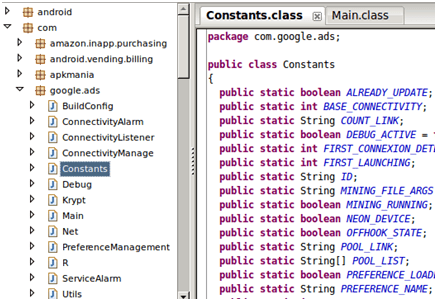The Android is the most popular mobile operating system in the world, so it's very natural to target malware.
According to one article in blog of TrendMicro, a new malware has been developed that is designed for mining for various digital coins, such as Bitcoin, Litecoin and Dogecoin.
His name: ANDROIDOS_KAGECOIN.HBT.

The presence of this malware on the devices affects the user experience in several ways. It shortens its life span battery of the smartphone constantly using their system resources. The overall life of the device is also affected.
The new malware was discovered in repackaged copies of various popular applications Google Play Store. For example Football Managers Handheld and TuneIn Radio.
“The applications have been injected with code CPU mining taken from legitimate Android mining apps. It is the code used in the well-known cpuminer software,” the blog post says.
When installed on the device, malicious software starts working in the background as soon as it detects an internet connection. It is designed to begin mining with the CPU of the device and connects to a dynamic domain that redirects to an anonymous Dogecoin mining pool.
TrendMicro also explains that malware has been engineered to download a file that contains all the information needed to configure malicious software. Obviously, by constantly modifying this file, hackers avoid locating them from authorities, or from any interested party.
So beware of what you download and install on your devices, as we have seen several times the Google Play Store does not provide security.





